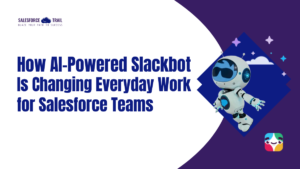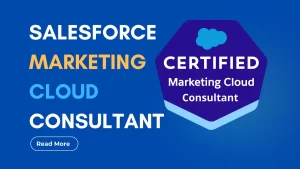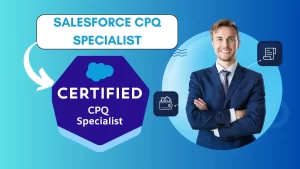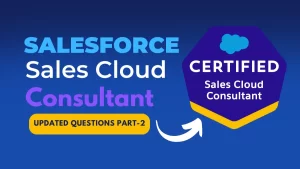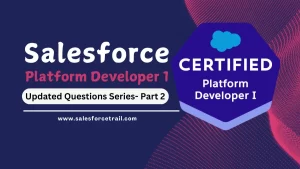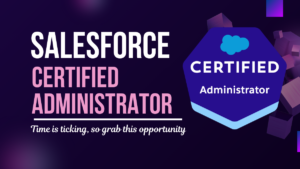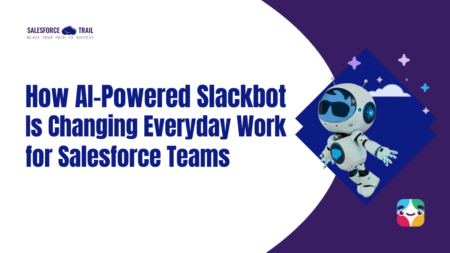The demand for Salesforce professionals is booming, thanks to the ever-growing Salesforce ecosystem. Businesses across industries rely on Salesforce to manage customer relationships, automate processes, and gain actionable insights. If you’re considering a career in the Salesforce ecosystem, knowing what skills employers value most can give you a competitive edge. This guide breaks down the top Salesforce skills that can set you apart as a professional. Whether you’re just starting or looking to level up, these skills will help you succeed.
Understanding Salesforce Basics
Employers expect Salesforce professionals to have a solid grasp of the platform’s core functionalities. This includes understanding objects, records, and fields, as well as mastering navigation through the interface. Knowing how Salesforce supports sales, service, and marketing teams can make you a valuable asset.
Tip: Familiarize yourself with Trailhead, Salesforce’s free learning platform, to build a strong foundation.
Customization and Configuration Expertise
Not all businesses use Salesforce the same way. Employers need professionals who can customize the platform to meet unique business needs. This includes creating custom fields, modifying page layouts, and setting up workflows and automation rules.
Bonus Skill: Learn Salesforce Flow to design sophisticated automation without writing code.

Data Management Skills
Handling customer data is a crucial part of working in Salesforce. Employers look for professionals skilled in importing, exporting, cleaning, and maintaining data integrity. Proficiency with tools like Data Loader and an understanding of Salesforce data security practices are highly valued.
Pro Tip: Master the basics of data modeling to design efficient database structures.
Apex and Visualforce for Developers
For those pursuing technical roles, knowing how to code in Apex (Salesforce’s programming language) and build custom user interfaces with Visualforce is critical. Employers value developers who can create scalable solutions tailored to their organizations.
Future-Ready: Learn Lightning Web Components (LWCs) to stay ahead as Salesforce transitions to modern web standards.
Salesforce Integration Skills
Businesses often integrate Salesforce with other systems like ERP, marketing tools, or third-party apps. Having skills in API integrations, middleware (like MuleSoft), and tools like Zapier can give you a competitive advantage.
Pro Tip: Showcase your understanding of REST and SOAP APIs to impress technical recruiters.
Business Analysis and Problem-Solving
Beyond technical expertise, employers value Salesforce professionals who can understand business challenges and provide solutions. This involves gathering requirements, mapping processes, and translating them into Salesforce features.
Key Question: Can you bridge the gap between business needs and technical implementation?
Salesforce Certifications
Certifications validate your expertise and make your resume stand out. The most sought-after certifications include:
- Salesforce Administrator
- Salesforce Platform Developer I
- Salesforce Sales Cloud Consultant
- Salesforce Marketing Cloud Specialist
Quick Win: Start with the Salesforce Administrator certification to build a strong foundation.
Communication and Collaboration Skills
Salesforce projects often involve cross-functional teams, so employers seek professionals who can communicate technical concepts in simple terms. Collaboration tools like Slack, Jira, or Asana are often used alongside Salesforce to ensure team alignment.
Pro Tip: Practice presenting Salesforce solutions to non-technical stakeholders.
Knowledge of Industry Trends
Salesforce evolves constantly, and staying updated is crucial. Employers appreciate candidates who know the latest trends, such as AI-powered Salesforce Einstein or the benefits of Salesforce Customer 360.
Stay Informed: Follow Salesforce blogs, webinars, and Dreamforce events to keep learning.
Project Management Skills
Salesforce implementations are often part of larger projects. Understanding project management frameworks like Agile or Scrum and tools like Salesforce Agile Accelerator can help you manage timelines, resources, and deliverables.
Extra Mile: A Project Management Professional (PMP) certification can complement your Salesforce skills.
Why These Salesforce Skills Matter
These Salesforce skills are not just about knowing the platform; they reflect your ability to adapt to evolving business needs. Employers want professionals who can leverage Salesforce to drive innovation, improve efficiency, and provide value.
By focusing on these skills, you position yourself as a well-rounded Salesforce expert capable of meeting any challenge. Whether you’re applying for your first Salesforce job or aiming for a promotion, mastering these skills can open doors to exciting opportunities.
Must Visit Links:
- Top 5 Reasons to Build an AI Agent for your Business
- How does Salesforce Data Cloud work? | From Data Collection to Real-Time Insights
- Want to Become a Salesforce Architect? | A Complete Guide to Success
Resources
- [Salesforce Developer] (https://developer.salesforce.com/)
- [Salesforce Success Community] (https://success.salesforce.com/)
For more insights, trends, and news related to Salesforce, stay tuned with Salesforce Trail
Mark Jacobes is a seasoned Salesforce expert, passionate about empowering businesses through innovative CRM solutions. With over 6 years of experience in the Salesforce ecosystem, Mark specializes in Salesforce development, integrations, and digital transformation strategies.
- Mark Jacobeshttps://salesforcetrail.com/author/markjacobes/September 8, 2025
- Mark Jacobeshttps://salesforcetrail.com/author/markjacobes/
- Mark Jacobeshttps://salesforcetrail.com/author/markjacobes/
- Mark Jacobeshttps://salesforcetrail.com/author/markjacobes/


